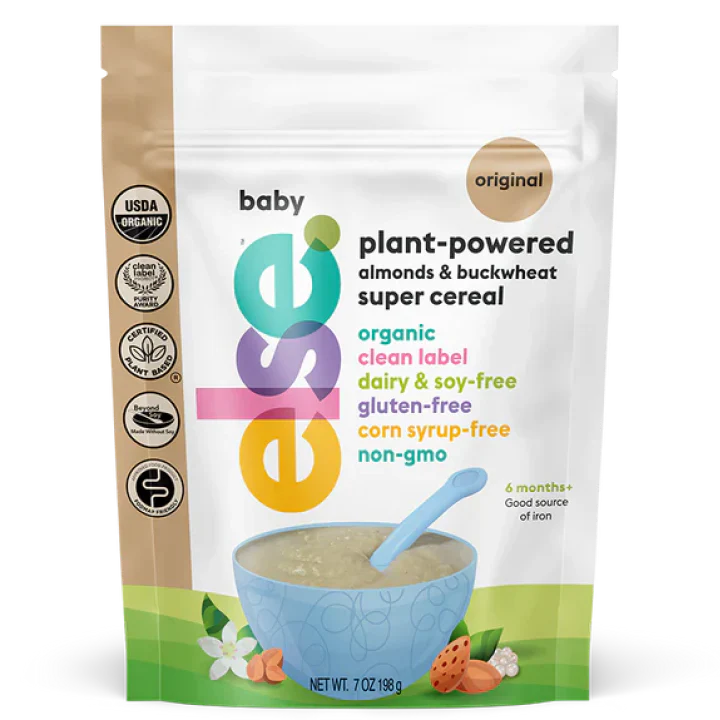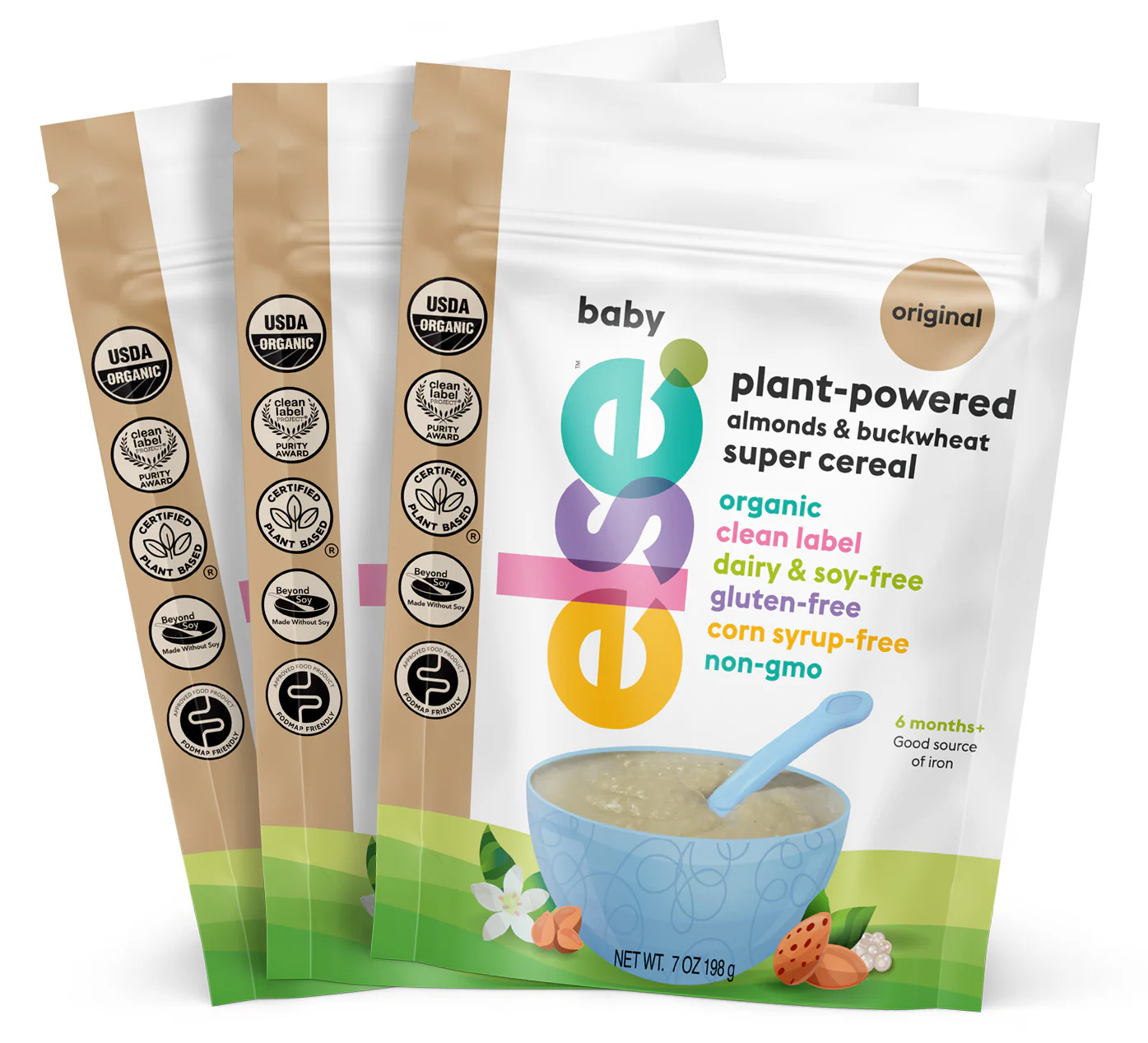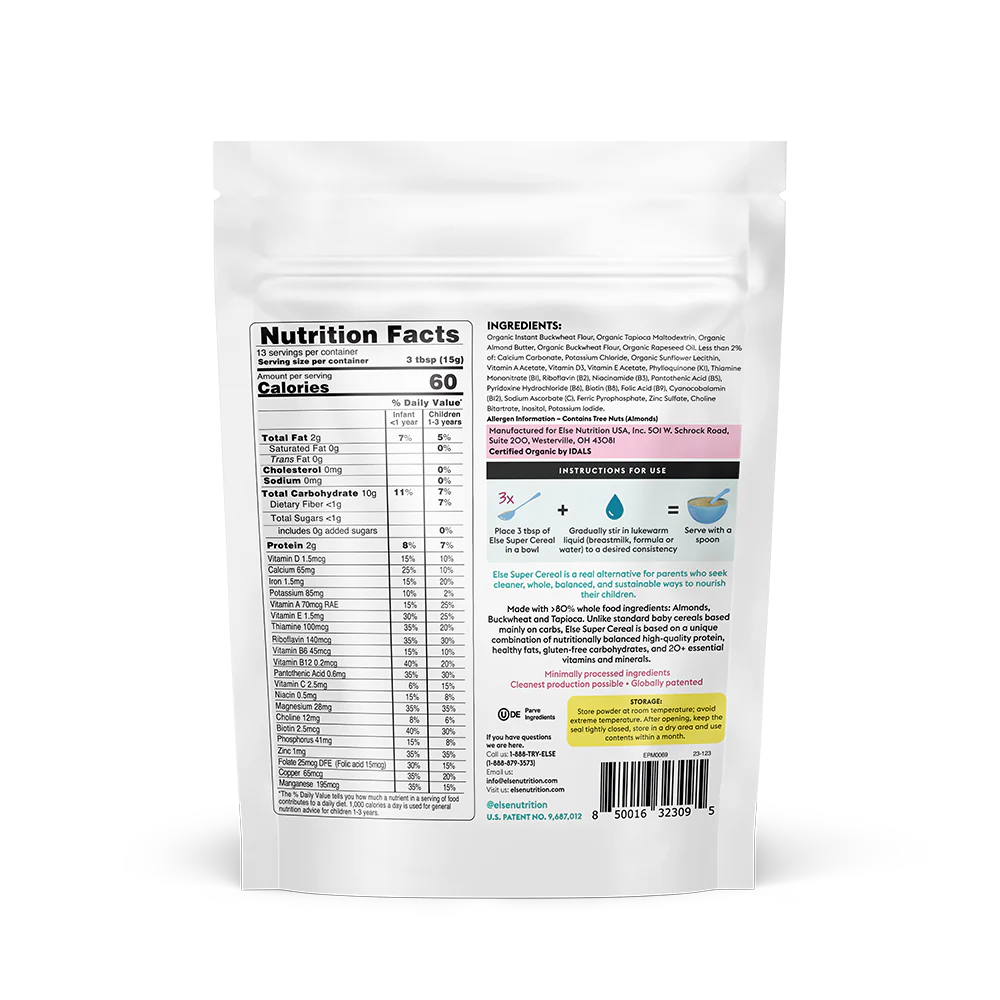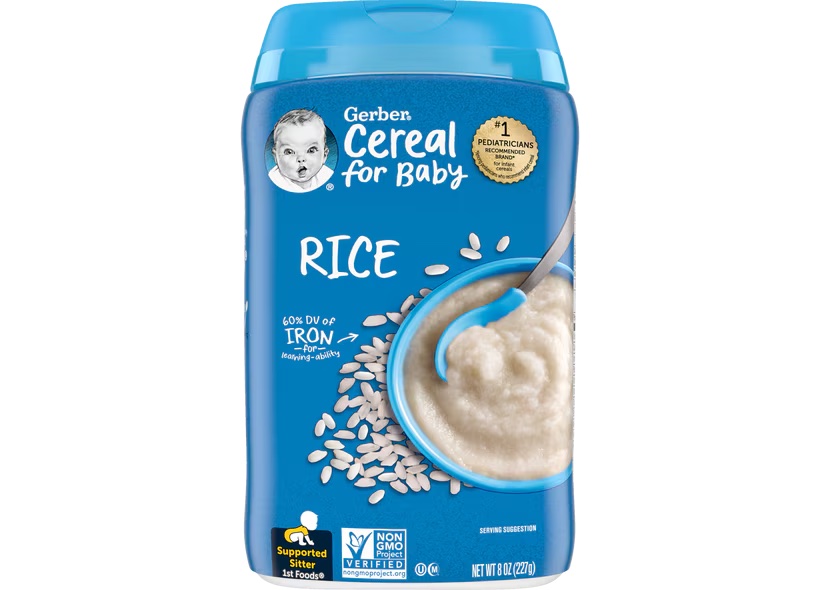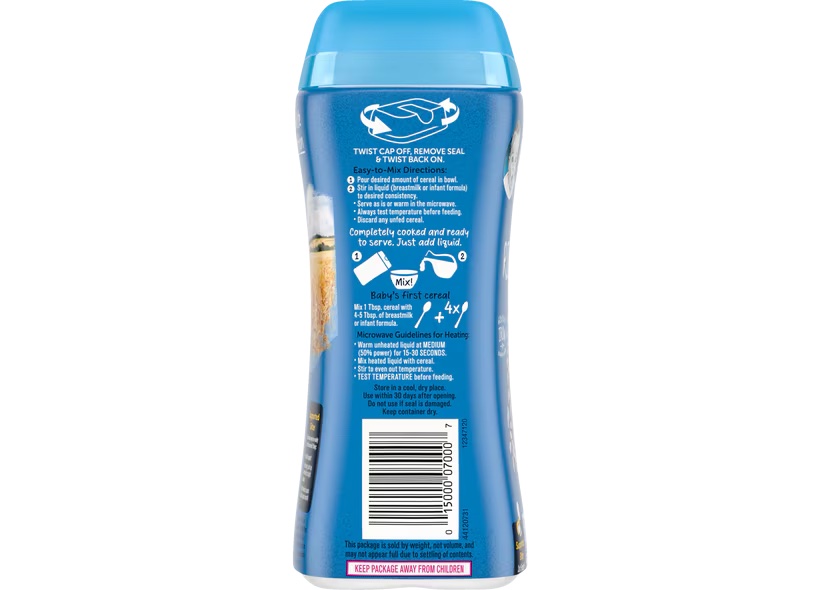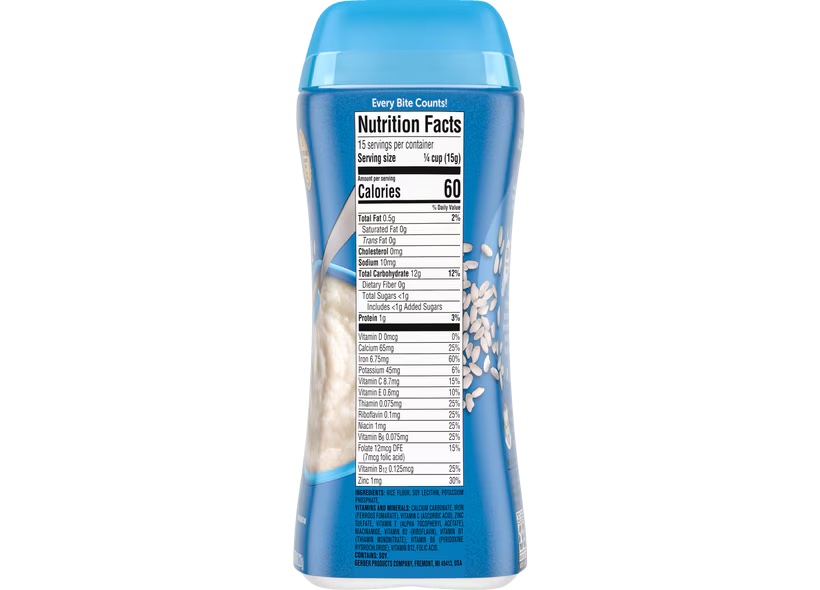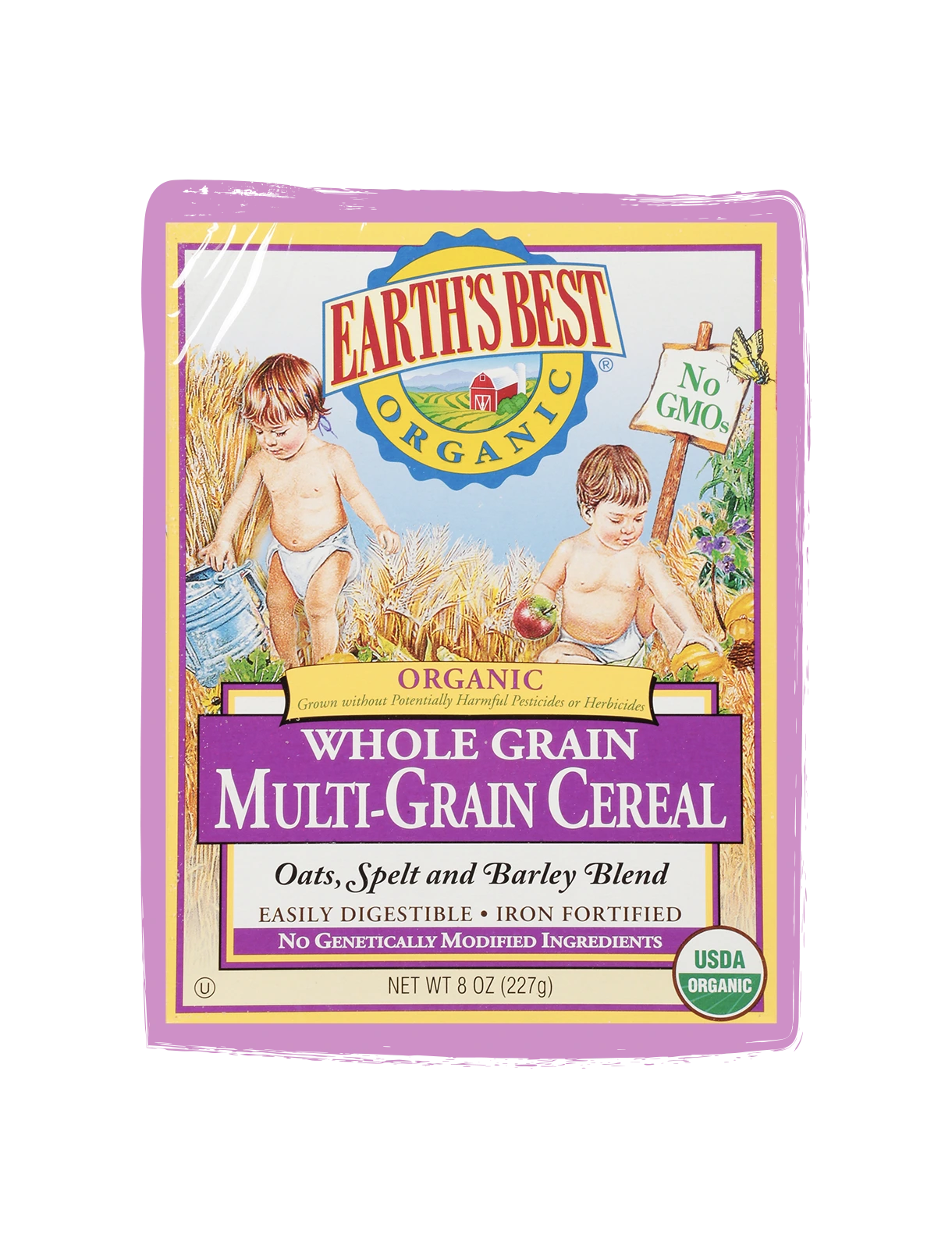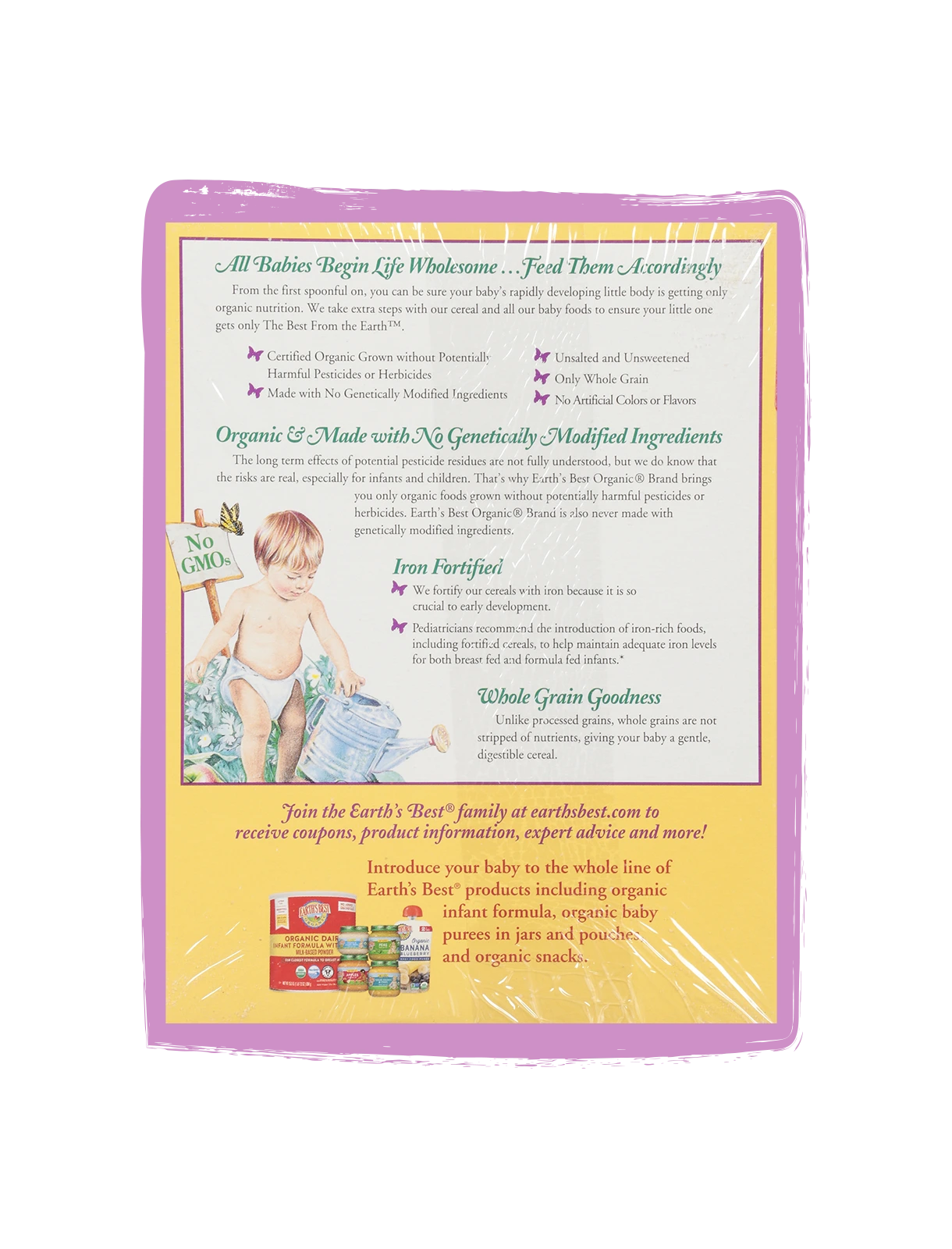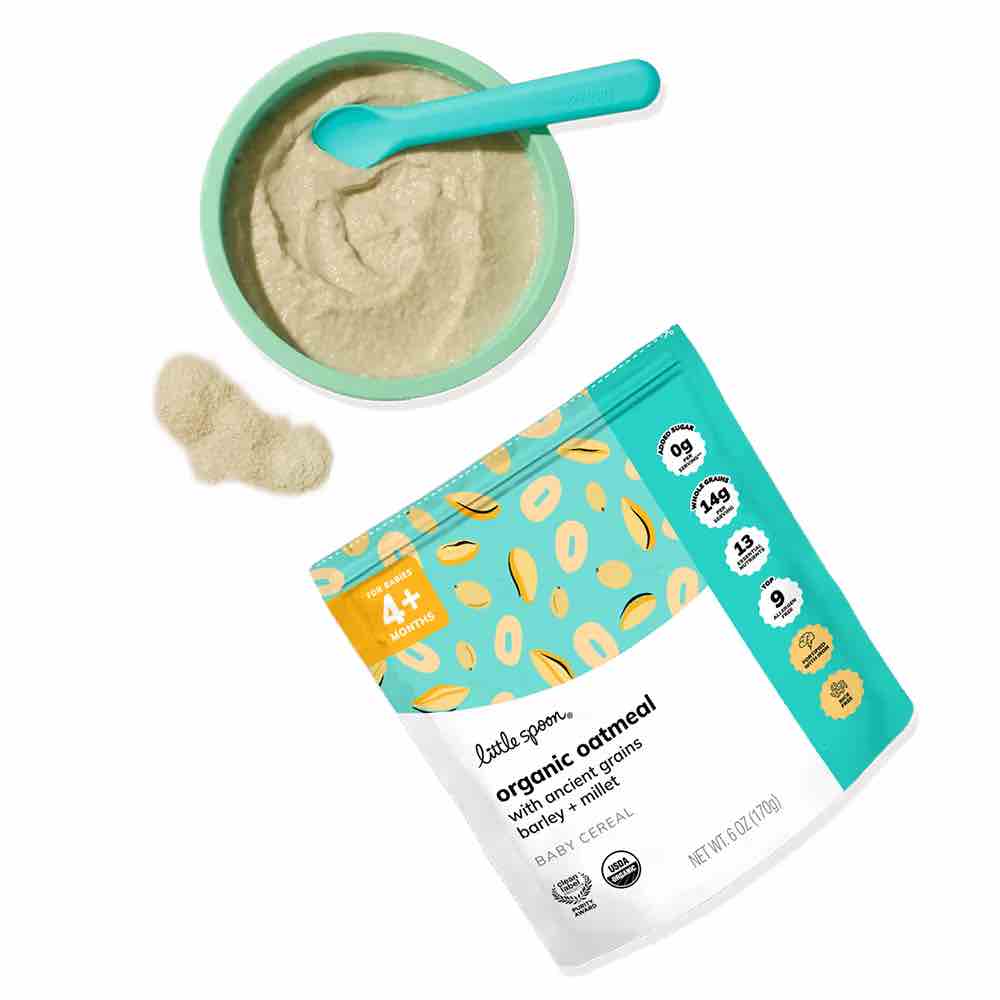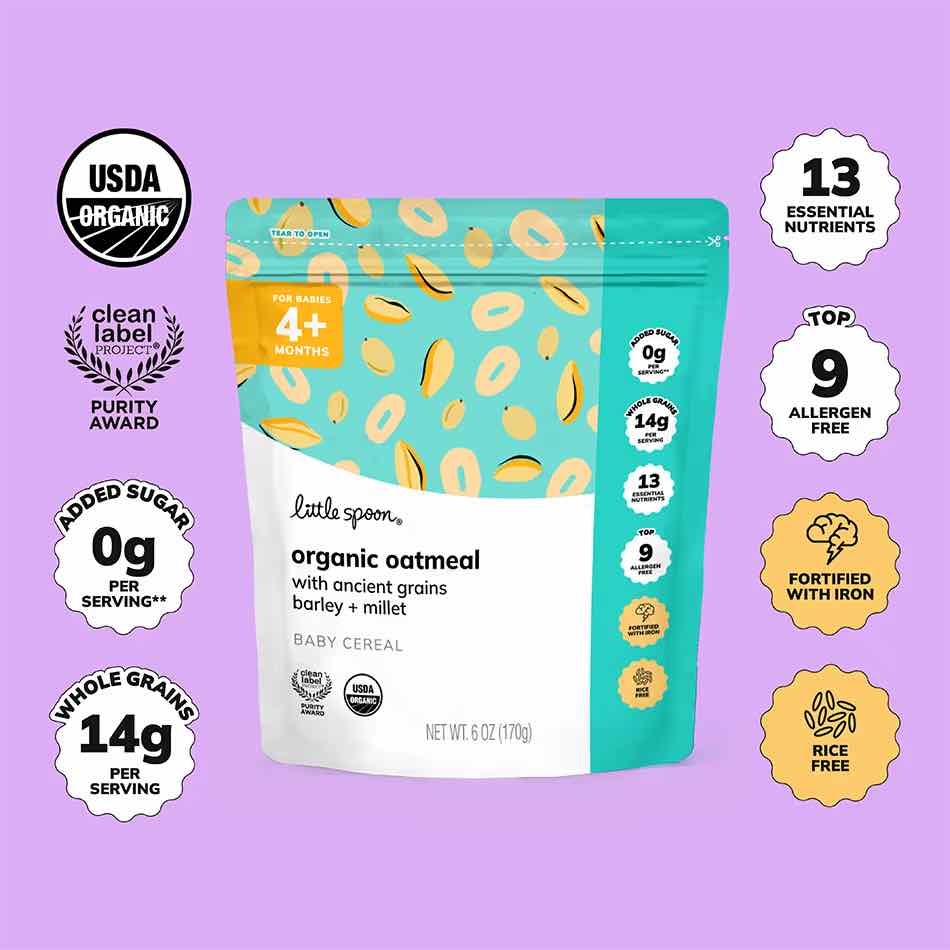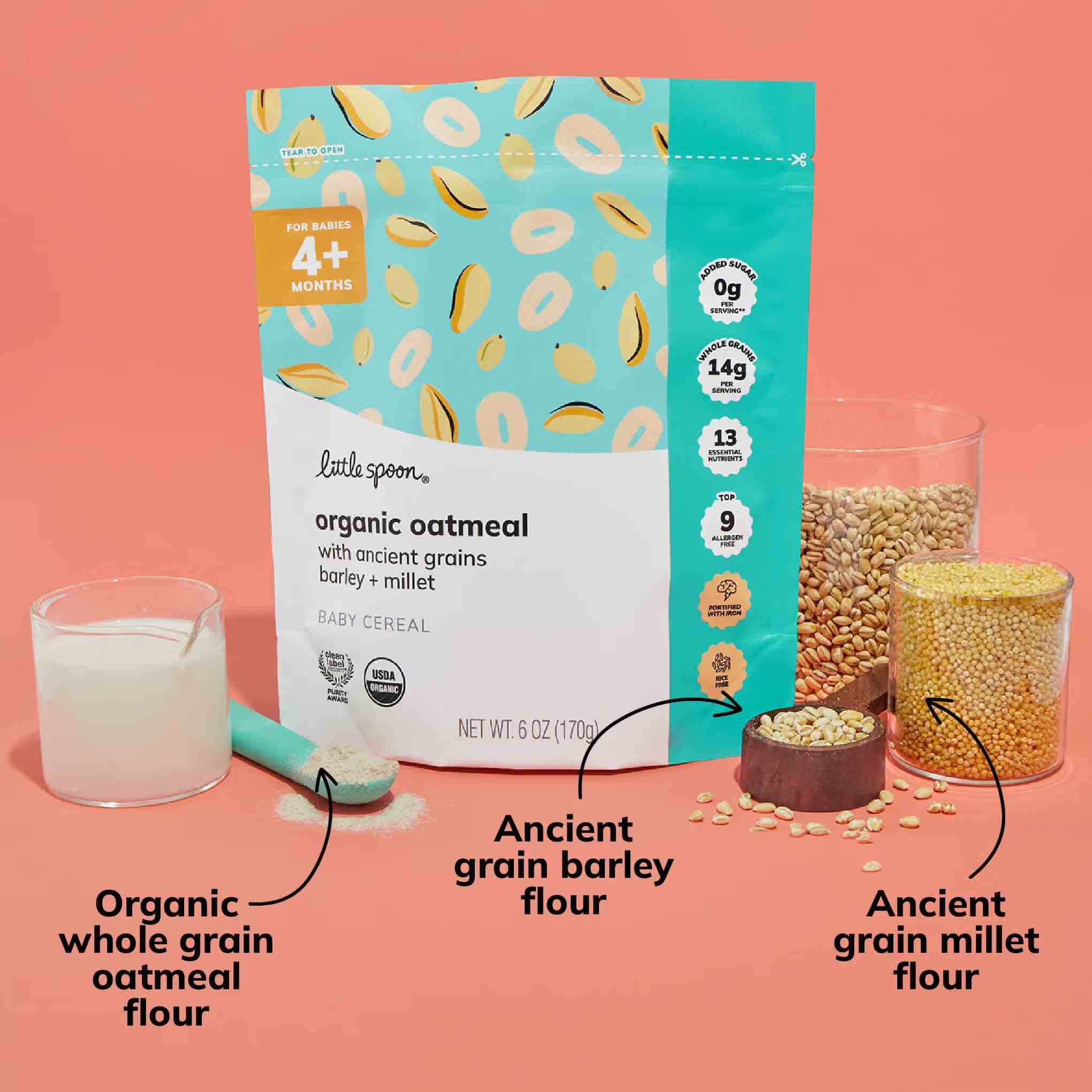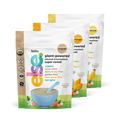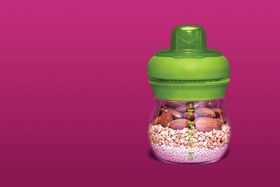4 Best Baby Cereals for a Bottle: Easy to Mix and Digest
Bottle-ready goodness: Perfectly blendable cereals for a seamless transition to solids
Published December 2, 2024

Introducing solid foods is a significant milestone in your baby's life. Baby cereals offer a gentle and nutritious way to begin this journey. These cereals are formulated to be easily digestible and fortified with essential vitamins and minerals that complement breast milk or formula.
This guide will cover everything you need to know about adding baby cereals to bottles and how to select the best option for your tiny tot.
» Ease them into solids with cereal that's perfect for mixing with a bottle
Our Pick: Best Baby Cereals for a Bottle
- Best overall baby cereal for a bottle: Else's Solution
- Best digestible baby cereal for a bottle: Gerber Rice Cereal
- Best iron-fortified baby cereal for a bottle: Earth’s Best Organic Multi-Grain Baby Cereal
- Best multi-grain baby cereal for a bottle: Little Spoon Organic Oatmeal Baby Cereal
Why Add Cereals to a Bottle?
Adding cereals to bottles is more than just a feeding technique—it's a carefully considered nutritional strategy. Parents typically consider this approach for these reasons:
- Thicker Consistency: Adding cereal to formula or breast milk can create a thicker consistency, slowing digestion. This can lead to a feeling of fullness and potentially more extended sleep periods.
- Caloric Density: Cereals can add extra calories to each feeding, which might help satisfy a baby's hunger, especially during growth spurts or periods of increased activity.
- Essential Nutrients: Fortified cereals can provide additional nutrient like iron, which is crucial for brain development and preventing iron-deficiency anemia, especially in exclusively breastfed babies.
- Muscle Strengthening: The thicker consistency of cereal-enhanced formula can help babies develop the muscles needed for swallowing and digestion.
- Reduced Spit-Up: The thicker consistency of cereal-enhanced formula can help reduce the frequency and severity of reflux episodes, particularly in babies with mild reflux.
- Gradual Transition: It can serve as a gentle introduction to solid foods, preparing the baby's digestive system for more complex foods.
While these are popular reasons, consulting with a pediatrician before introducing cereals to a baby's diet is crucial. They can provide personalized advice based on your baby's needs and developmental stage.
» Follow these tips for a gentle transition from breastfeeding
When Start Giving Your Baby Cereal
Most pediatricians recommend introducing solid foods like cereal between 4 to 6 months of age. [1] However, this timing can vary based on individual developmental readiness.
Before introducing any solids, ensure your baby can:
- Sit upright with minimal support
- Hold their head steady and independently
- Show signs of losing the tongue-thrust reflex
- Demonstrate curiosity about food when others are eating
» Check out the signs your baby is ready for solids
4 Best Baby Cereals for a Bottle
Practical Steps for Introducing Cereals
Adding cereal to your baby's bottle is a significant first step in their journey to solids. To ensure a safe and nutritious transition, keep these tips in mind:
- Correct Ratio: Start with 1 tsp cereal per 2–4 oz of liquid. Mix thoroughly to avoid lumps.
- Right Nipple: Choose a nipple with a larger hole or cross-cut design for easier flow. Test the flow to ensure it's slow, not fast.
- Prevent Choking: Always mix the cereal thoroughly to eliminate dry clumps. Ensure a smooth consistency before feeding.
- Temperature Control: Warm the bottle slightly to dissolve the cereal, but test the temperature to ensure it's lukewarm.
- Monitor Responses: Start with small amounts and gradually increase. Watch your little one for any signs of discomfort or allergic reactions.
- Maintain Hygiene: Clean and sterilize bottles and nipples frequently to prevent bacterial growth.
» Stop the dreaded spit-up with these soothing formulas
Top Tips For Choosing a Cereal
Not all baby cereals are created equal. Consider these factors during your selection process:
- Ingredient transparency builds trust. Look for brands that list all ingredients clearly and give detailed nutritional information. Avoid cereals with long lists of unpronounceable additives.
- Organic certifications offer added assurance. Certified organic cereals undergo rigorous testing to ensure they're free from harmful pesticides and industrial chemicals.
- Plant sources offer diverse nutritional profiles. Cereals from buckwheat, almond, and other grains offer complete protein profiles and essential amino acids.
- Age-appropriate formulations matter. Ensure the cereal you choose is designed for your baby's developmental stage.
» Worried about heavy metals in cereal? Try these metal-free options
Nurturing Nutrition, One Bottle at a Time
Choosing the right cereal to start your baby's journey to solids is about more than picking a product off the shelf. It's about understanding your baby's unique nutritional needs, developmental stage, and individual tolerances.
Unlike traditional cereals, Else Nutrition offers a plant-based, hypoallergenic formula packed with essential nutrients. They're committed to providing a solid foundation for your baby's future health and well-being by prioritizing whole-food ingredients.
The content and advice provided in this article are for informational purposes only and are not a substitute for medical diagnosis, treatment, or advice for specific medical conditions.
Always consult a pediatrician to understand your child's needs.







